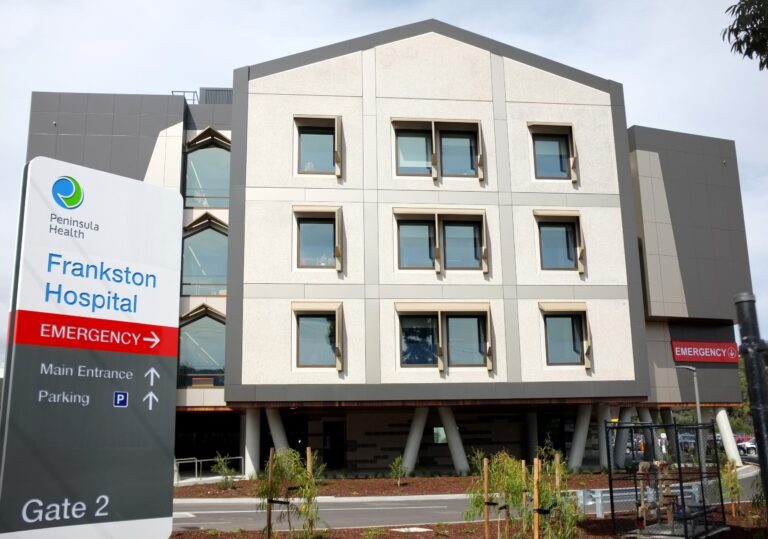21st February 2024 14:43
Victorian Legislative Council, Melbourne
Rachel PAYNE (South-Eastern Metropolitan) (14:42):
I rise to speak to the Drugs, Poisons and Controlled Substances Amendment (Pill Testing Pilot for Drug Harm Reduction) Bill 2023. I am extremely proud that Legalise Cannabis Victoria is a co-sponsor of this bill along with the Animal Justice Party and the Victorian Greens. I would also like to acknowledge that this is not the first time this bill has been in Parliament. As my colleague earlier pointed out, this is the fourth time a bill like this has been presented before Parliament.
We have seen bills like this co-sponsored by the Victorian Greens and the Reason Party, and other members of this chamber have been very vocal in this space, including Mr Limbrick from the Libertarian Party, who has called for drug-checking services as well. What this demonstrates is that harm reduction measures of this magnitude are above political lines and are above party politics.
This bill in principle is fairly simple, but most importantly, it is sensible. It is about reducing harms, and it is about keeping people safe. This bill’s aim is to create a drug-checking service pilot in Victoria. This would include a mobile testing set-up at major music festivals and, secondly, a fixed-site location that would provide year-round drug-checking services and would service partygoers as well as those who regularly use drugs. The pilot would run for two years with the option for extension to four years.
So what do we know about drug-checking services? Well, firstly, we know that they work. They were first trialled here in Australia at a music festival called Groovin the Moo in 2018 and 2019. This led to the establishment of Australia’s first ever pill-testing service provider, and it was at a fixed-site address in Canberra, called CanTEST. That was set up in July 2022. In the first six months CanTEST offered 675 discussions, 85 health interventions and 614 substance tests, and this evidence saw funding extended for the service to remain permanently.
This is what happens at drug-checking facilities: a person who is considering using a pill or another drug can have them tested to discover what it is they may be taking. They then have a health professional provide a consultation where they provide a range of information to help that person make an informed decision while underlining the risks and what to do in an event where there may be adverse outcomes.
I had a constituent recently approach me who visited this facility in Canberra, and what I found really interesting was that their experience was very non-judgemental. They presented what substances they were planning on consuming, and a test was, obviously, performed. The follow-up with the health professional was a disclosure that, yes, what you have provided is what you think it is, but also there are additives in this.
This particular person was able to tell me what those additives were and also what the experience was anticipated to be. In this particular instance it was an additive of caffeine. That person then was able to go, ‘Well, I know how much I really do aim to consume here.’ It gave them an ability to manage that risk.
Again, the evidence for pill testing shows that it reduces the amount of drugs consumed by individuals and it reduces the variety of drugs consumed in one session – both of which, we know from the experts, are risk factors for overdose and death. Opponents to pill testing say that drug checking encourages people to take drugs, but this is just not the case, and this is not the evidence that we are being presented with.
What these services provide is an opportunity for early intervention, education and referral pathways to a range of health and community service providers if they are needed. Pill Testing Australia, who facilitate CanTEST, stipulate that they never advise people it is safe to take drugs, they never promote the consumption of drugs and they offer a non-discriminatory health service. In fact what the evidence from Canberra and around the world shows is that people who have access to drug-checking services adjust their intended drug-taking behaviour to reduce their risks, as my constituent reported he did in that particular instance.
We have seen this Parliament have discussions around drug checking before, and we even saw in March 2018 the Law Reform, Road and Community Safety Committee, a joint committee, deliver the report for the inquiry into drug law reform. I thought it would be interesting to reflect on what this inquiry experienced, where they went and where they travelled to internationally, because the committee visited Geneva in Switzerland, Lisbon in Portugal, London in the United Kingdom, Vancouver in Canada, and Denver and Sacramento in the United States.
What an interesting experience that would have been. As part of that overseas study tour the committee observed the drug-checking services provided by the Loop, and this was during a music festival event called the Secret Garden Party. The Loop is a not-for-profit community interest company that provides drug-testing services, welfare and harm reduction services at nightclubs, festivals and other events – exactly where they are needed.
Interestingly, the delegation included Rick Nugent, who at the time was assistant commissioner for Victoria Police in the eastern region, and I highlight this because the quote that I am about to read out really demonstrates that there was so much enthusiasm there to learn from other jurisdictions. What Rick said was: What has been particularly helpful and has broadened our thinking was the opportunity to attend overseas with the delegation …
Some really good initiatives, some good policies being trialled in various areas, and all of that has been brought back to VicPol as well to help inform our thinking, to challenge our thinking and to really look at a contemporary way in which we can target the harms from drugs in the community. That committee also spent time with local police at the Secret Garden Party, and what they reported back was that they were really impressed that people found them really approachable.
This harm reduction initiative and having this as a normal part of when you go to a music festival in the UK meant that people felt safe and they felt more engaged with those that were there to keep them safe. The committee observed that the police presence was welcome and positive. They also noted, however, that there was a strong consensus in the evidence to this inquiry supporting drug checking, with most recommending that the Victorian government take:
… immediate steps to establish pill testing services in the State, modelled on international best practice.
Now we get back to what is happening here in Victoria. Well, this summer alone, on 6 January we saw nine people who attended the Hardmission festival – and I know that a few of my colleagues have spoken in this place about that festival – rushed to hospital, with eight requiring intubation, after ingesting what they thought was the party drug MDMA.
Then the following weekend, on 12 January, two women were taken to hospital after suspected drug use at Juicy festival in Melbourne. We know from the reports following those events that all of those people who attended that festival thought they were taking MDMA, but there were other substances in those drugs and those drugs were particularly strong.
If there had been a drug-checking service provision there, that may have alleviated a lot of those incidents. Unfortunately, this is not a new occurrence just this summer gone. We have heard multiple coroners call for a harm reduction approach. In fact last year Victorian State Coroner John Cain recommended the government introduce drug testing after the death of a 26-year-old man who had taken a highly potent form of MDMA.
Another Victorian coroner investigating the death of five young men who consumed a potent psychoactive substance called on the state government to introduce illicit drug testing and a warning program. The coroner Paresa Spanos said on Wednesday the men, aged between 17 and 32, died in a six-month period starting in mid-2016.
Again in October last year we also saw the experts coming forward. The Victorian Alcohol and Drug Association, or VADA, in collaboration with RMIT University, released a statement supported by 77 health and community agencies calling on the Victorian government to legislate a drug-checking system and enhance a public alert system.
So we have the parliamentary committee recommending pill testing, we have multiple coroners calling for action and we have at least 77 health and community agencies calling for drug-checking services. This is very compelling. I actually applaud the government for acknowledging the importance of harm minimisation, and I appreciate the valuable work that the Minister for Mental Health is doing in this space as well as the Premier.
We know this impacts so many in our community, not just those who consume drugs.
I mean, can you imagine being the ambo that turned up at Hardmission festival not knowing where to start? Can you imagine the cost of loss of life to a family? Can you imagine how much it is costing Victoria Police to instil a ‘Just say no to drugs’ approach by having sniffer dogs present – and do not get me started on that, because we know that that actually causes young people especially to just swallow what they have got.
The costs are adding up. When you look at opponents and they are concerned about the costs adding up, they are more concerned about how much pill testing is going to cost. Well, think about the hospitalisations, think about the ambulance call-outs, think about the mental health and wellbeing of the front line who have to deal with that instance.
How much is that costing? I know that some of my fellow crossbench colleagues have actually had the Parliamentary Budget Office look into these costings.
I guess what I really want to highlight, though, is that drug taking is not an unusual thing amongst our society. I have also consumed pills. I had my first pill when I was 19, and I was fortunate because I was surrounded by people who had experienced drug use before. They encouraged me to just have a small amount to start.
If I had not had that support there or that little bit of ‘This is how you do it’ information, who knows where I would have ended up. I am 42 now, and we always talk about back in our day what drugs were like then. But now there are so many new and emerging psychoactive substances, and they are presenting at these drug-checking services. These drug-checking service providers are saying, ‘We don’t know where they’re coming from.
We’re astounded at what is being created.’ Drugs are being sold as MDMA that are in fact dangerous doses of opioids. Drugs are two or three times stronger than they are reported to be, and these are the reports that we are hearing coming out of these drug service providers.
But the experts are actually offering a solution here, and Pill Testing Australia have publicly offered the Victorian government a free trial. They are ready to go. They have the staff, they have the resources, they have the specialist equipment and to alleviate any other concerns they have the insurance to facilitate a trial at a major music festival. They are ready to go, and I really do encourage the government to accept this offer as a way of just seeing how it goes.
Can we just trial it at one music festival, see how it goes and see what the outcome will be? I promise you that people will engage with that service provision if it is there, and this will not cost the government anything.
Just to conclude, I would like to say that drug-checking services are a no-brainer. The evidence is clear. Across different party lines we all agree that we need a harm minimisation approach, so I look forward to collaborating with you all on this.
[ENDS]





